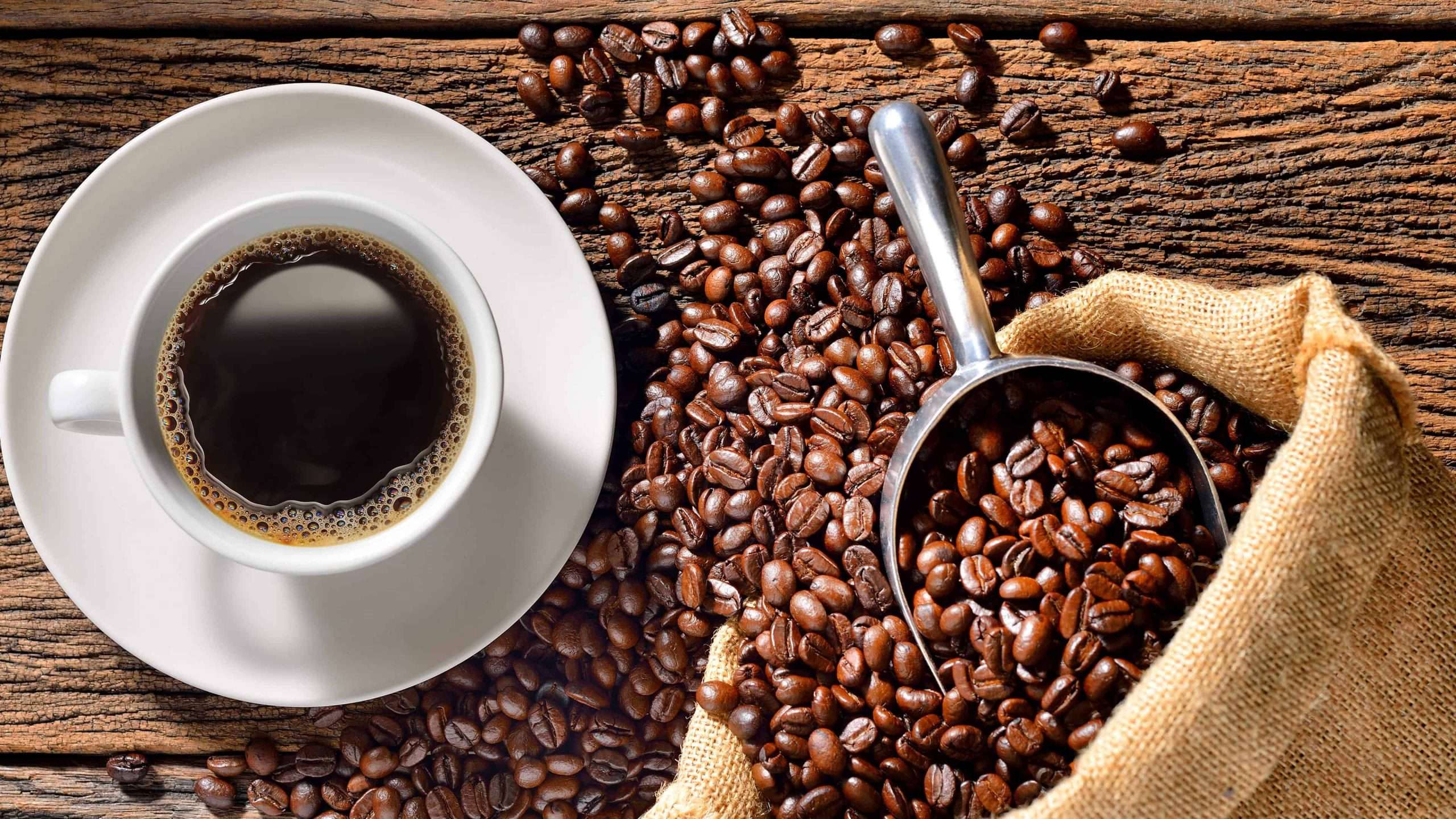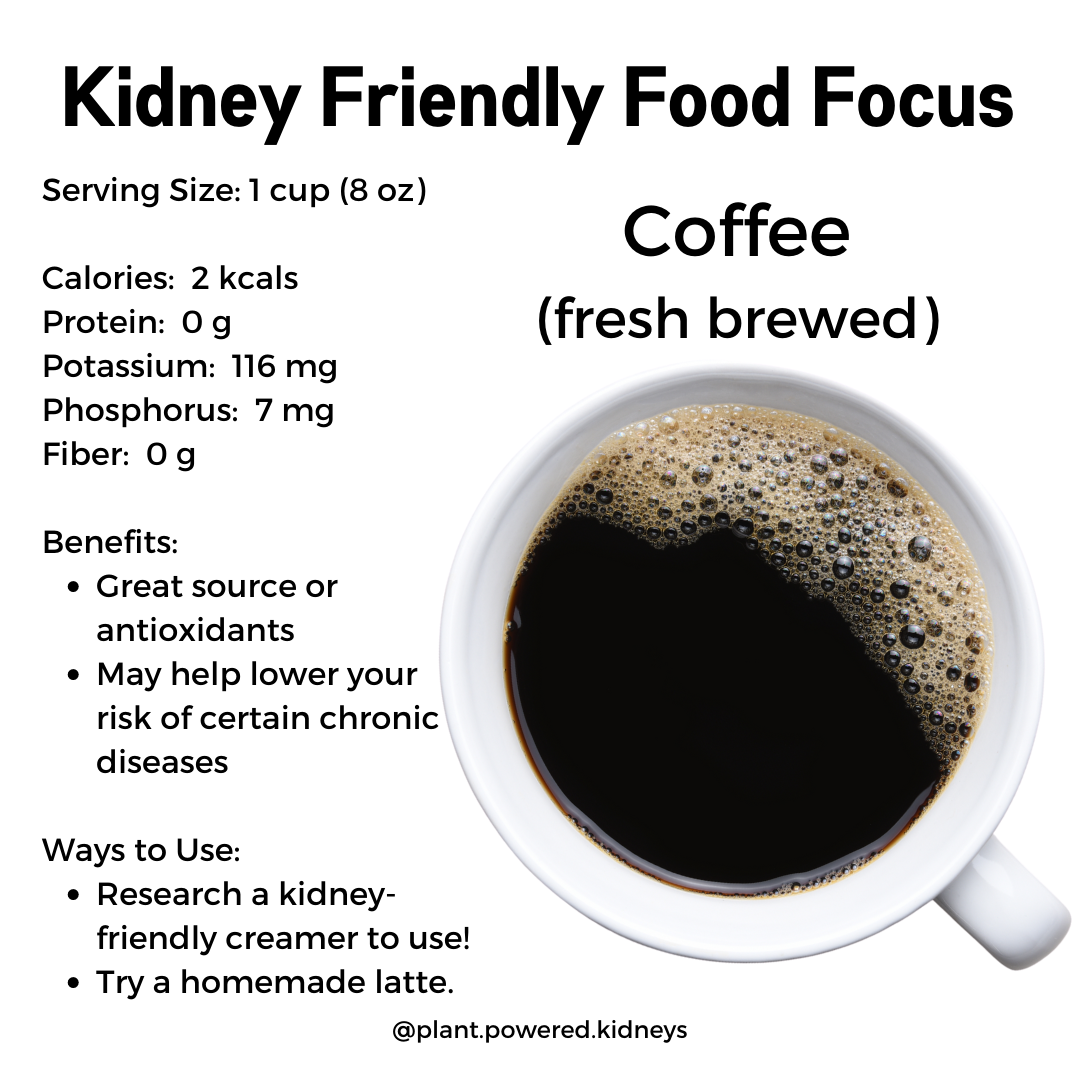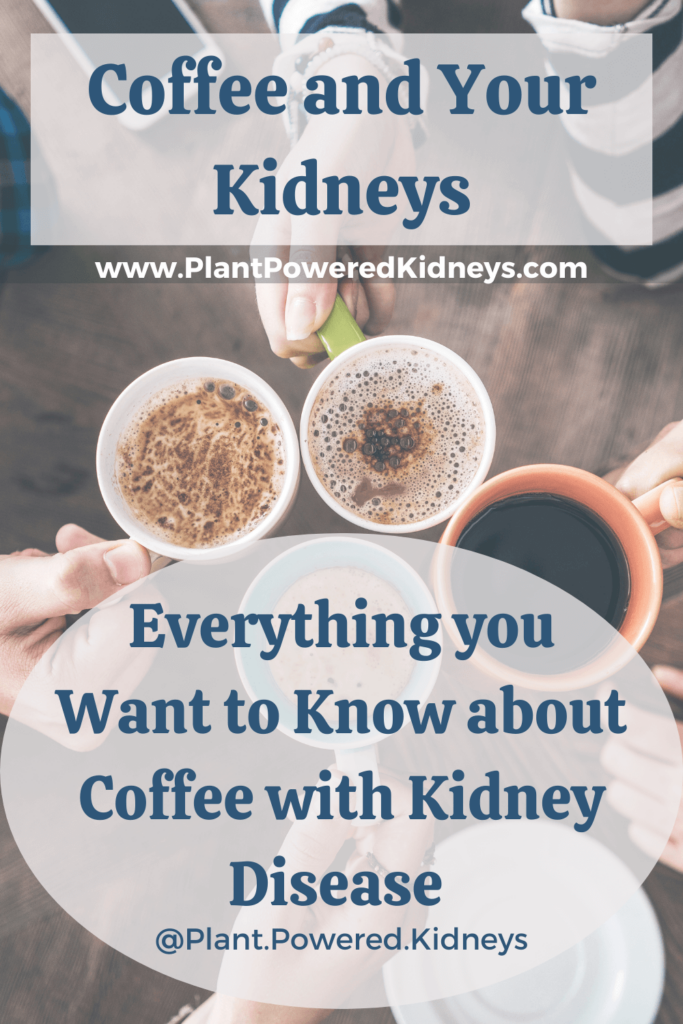Coffee Is Linked To Poor Sleep
Caffeine is a stimulant which means that it increases activity in your brain and nervous system. It is also considered an adenosine blocker, it attaches itself to the same receptors that adenosine would normally latch onto.
Adenosine is found in every cell of the body and one of its most important roles is to control the sleep-wake cycle. It also has a number of other physiological functions such as improving blood flow, protecting the heart, nerves and other body parts from damage and disease, as well as balancing immune function.
Adenosine slowly builds up in the body over the course of the day, eventually making you sleepy. As adenosine attaches to adenosine receptors, it begins to promote muscle relaxation and tiredness. When we drink coffee, the caffeine attaches to our adenosine receptors, blocking the beneficial actions of adenosine. This is one of the reasons that coffee can contribute to insomnia and poor sleep.
Many people think that as long as they dont drink coffee too late in the day that it wont affect their sleep however in one study, even when participants were given caffeine at 7 am, sleep efficiency and total sleep time were both significantly reduced which shows us that coffee at any time of day, even first thing in the morning can negatively impact sleep.
Caffeine As A Diuretic
Caffeine, which belongs to a class of substances called methylxanthines, is a mild diuretic. Theophylline, another drug in this class, was actually used as a diuretic until more potent diuretics were developed. Both of these drugs act on the kidneys by preventing absorption of water. Research reported by R.J. Maughan and J. Griffin in the December 2003 “Journal of Human Nutrition and Dietetics” noted that people who had not had any caffeine for a few days had increased urinary output after drinking the amount of caffeine equivalent to two to three cups of coffee.
Other Recent Studies Have Found Increased Coffee Consumption Could Prevent Kidney Stones
This isn’t the only recent study to find a connection between coffee and the health of your kidneys. Research posted in the American Journal of Kidney Diseases on Oct. 21 analyzed genetic data from nearly 572,000 participants from the U.K. and Finland. Unlike the previous study, results showed that taking in a little more coffee could actually have a significant benefit.
“Our findings strongly suggest that regular coffee consumption reduces the risk of kidney stone formation,” Susanna C. Larsson, PhD, one of the study’s leaders from the Institute of Environmental Medicine at the Karolinska Institute in Stockholm, said in a statement. She added: “oing from, for example, one cup a day to 1.5 cups per day, reduces the risk of kidney stones by 40 percent.”
Don’t Miss: Is Apple Cider Vinegar Good For Kidney Disease
Mixed Causes Of Calcium Stones
Often, the cause of calcium stones is not known and is referred to as idiopathic nephrolithiasis. Research suggests that nearly all stones result from problems in the breakdown and absorption of calcium and oxalate. Genetic factors may play a role in about one-half of these cases. Many medical conditions and drugs can also affect digestion and intestinal absorption.
Excess Calcium in the Urine
Hypercalciuria is a condition in which there is too much calcium in the urine. It is responsible for as many as 70% of calcium-containing stones. A number of conditions may produce hypercalciuria. Many are due to genetic factors, but most cases are due to unknown causes .
The following can lead to hypercalciuria and calcium stones:
- Too much calcium absorbed by the intestines. This is usually caused by genetic factors.
- High intake of calcium, often in the form of supplements taken beyond recommended levels.
- Renal calcium leak. In this condition, the kidney does not regulate minerals normally, causing an increase of calcium in the urine.
- Increase in levels of 1,25 dihydroxy vitamin D or in the activity of the vitamin D receptor.
- Excessive sodium. High urinary levels of sodium result in increased levels of calcium. Certain defects in the kidney tubules transport system cause imbalances in sodium and phosphate, which can lead to high calcium levels in the urine. A high-salt diet can also produce this effect.
- High intake of refined carbohydrates.
- Excessive caffeine or alcohol intake.
Kidney Health With Urology Specialist

Dr Arianayagam is an expert in the field of urological cancer surgery and the treatment of urological conditions. He is one of the most experienced cancer surgeons in Sydney.
If you have any questions regarding kidney health or would like to book an appointment, please feel free to contact Dr Arianayagams office or call on , and his staff will be more than happy to assist.
Learn more about how we can help you below:
Also Check: Can Kidney Stones Make You Constipated
How Does Caffeine Affect The Urinary Tract
Caffeine is a popular stimulant that is consumed on an everyday basis by people all over the world. It may be the only thing that helps you up in the morning, but did you ever consider what happens to the rest of your body after overconsumption and repeated digestion? Caffeine doesnt exclusively offer the beneficial results that its commonly known for. This stimulant may just be the unknown cause to your bladder and urinary tract complications.
Four Myths About Kidney Stones
If you’ve ever had a run-in with kidney stones, then you’ve also had a run-in with a relative/neighbor/obnoxious over-sharer who has the home remedy that fixed them right up.
And while unsolicited after-dinner medical advice may sometimes sound reasonable, there’s a lot you need to know about your own kidney stones before you start adjusting your diet based on Aunt Alice’s latest stone story.
“You don’t want calcium because that’s what stones are made of, so ditch the milk.””Oxalates are bad, so stop eating foods like chocolate, beer, soy, nuts, spinach and coffee.””And if you feel a stone coming on, start drinking lots of cranberry juice to get rid of it.”
You’ve probably gathered lots of advice and home remedies in your battle against kidney stones . But many of grandma’s homemade fixes may actually do more harm than good when it comes to the specific composition of your kidney stones and the reasons why you are forming them.
What are kidney stones? They’re crystal-like formations of the excess minerals in your urine. This simple answer leads to simplified and problematic responses. The logic: Identify what you’re consuming, and reduce whatever the stone is made of.
Don’t Miss: What Tea Is Good For Kidney Function
A Brief History Of Tea
Tea is the most widely consumed beverage globally , after water, of course! Most tea comes from the leaves of the Camellia Sinensis plant. The variety of teas that come from this plant contain caffeine and includes:
- Black tea
- White tea
Herbal teas come from various plants and flowers and typically do not contain caffeine.
The origin of tea dates back to 2750 BC when it is thought that a Chinese emperor was boiling water, and a leaf from the Camellia Sinensis plant accidentally fell in.
Since then, black, oolong, and green tea have been heralded worldwide for their fantastic taste and medicinal properties and have been at the root of many cultural traditions ever since.
Kidney Health And Coffee Consumption: Is There A Link
Complete the form below and we will email you a PDF version of“Kidney Health and Coffee Consumption: Is There a Link?”
First Name*Would you like to receive further email communication from Technology Networks?Technology Networks Ltd. needs the contact information you provide to us to contact you about our products and services. You may unsubscribe from these communications at any time. For information on how to unsubscribe, as well as our privacy practices and commitment to protecting your privacy, check out our Privacy Policy
Coffee is the most popular drink on the planet, with approximately two billion cups consumed each day. Coffee seeds comprise a variety of minerals, vitamins, caffeine and phytochemicals that can have a myriad of effects on different systems within the body. It’s hardly surprising, therefore, that an area of scientific research has evolved to address the impact of drinking coffee at the molecular level. A “grande” amount of literature exists in this space, with previous studies asking questions such as: Can you really drink too much coffee? Is coffee good for metabolism?A new study by researchers at Johns Hopkins Bloomberg School of Public Health has focused specifically on the “coffeekidney” relationship. The results are published in theClinical Journal of the American Society of Nephrology.
Don’t Miss: Does Diet Soda Cause Kidney Stones
Coffee For Kidney Disease: The Pros And Cons
Know someone who is looking for this info? Share it!
If you enjoy your morning cup of joe, the thought of the pros and cons with coffee for kidney disease may weigh on your mind. And trying to determine whether or not coffee is bad for kidneys may not feel like an end-of-the-world problem if youre not a coffee drinker. But if you look forward to your morning cup of coffee to start off your day, finding out whether or not coffee can fit into your renal diet can make all the difference in how much you can actually enjoy it!
Here we will review the nutritional components, benefits, and risks of including coffee for kidney disease.
Blood Pressure And Kidney Function
High blood pressure can be a big factor in developing kidney disease. Its only second to diabetes in risk factor. There is some evidence that caffeine-containing coffee causes a momentary spike in blood pressure. However, it is thought that these effects are exaggerated in older patients not accustomed to the impact and those with a history of high blood pressure.
Due to this correlation, some believe excess coffee consumption may be detrimental to kidney health, especially in sensitive individuals. Despite this, most data shows that there is a minimal risk as long as coffee consumption remains below four cups daily.
If you are concerned about coffees effects on your kidneys, make sure to moderate your consumption over the day and be sure to contact your urology specialist.
Recommended Reading: Flomax Dosage For Kidney Stones
Is Coffee Bad For Your Kidney Here Is Your Complete Answer
Trust me, kidneys are pretty important kidney functions. You need them for your body to function and most importantly you need it to buy your next iPhone if youre poor like me. Now, to make sure youre correct, youre probably avoiding a lot of food and drinks. But no matter what, you cant just skip the coffee.
Is coffee bad for your kidney? Well, thats what Im going to focus on. Ill discuss the benefits and the drawbacks of coffee along with some extrados and donts. So, lets not wait anymore. Lets talk.
Mind Your Blood Pressure

Research indicates that coffee may increase blood pressure for a short duration after consumption.
For those who are more habitual coffee drinkers, this impact was not associated with the same temporary increase. Researchers speculate it may be due to caffeine tolerance that develops when you habitually drink coffee.
However, for those who are infrequent coffee drinkers, this will more likely occur, but there wonât be any associated kidney pain after drinking coffee.
While coffee may increase blood pressure temporarily after consumption, the effects donât seem to extend beyond a short duration. For those with high blood pressure and kidney disease, research suggests coffee is unlikely to have a significant impact on the overall risk.
That being said, limiting consumption to three or fewer cups a day is ideal.
Read Also: Apple Cider Vinegar And Kidneys
Caffeine Absorption Metabolism And Elimination
After oral intake, caffeine is rapidly and completely absorbed from the stomach and small intestine into the blood circulation, and is then distributed to almost all tissues and body fluids. The peak plasma concentration of caffeine is 810 mg/L, which is reached within 15120 min after its intake , whereas its half-life is 5 h . It is metabolized in the liver by cytochrome P450 to become metabolite products, including paraxanthine , theobromide , and theophylline . These dimethylxanthine compounds are then demethylated to monomethylxanthine and finally oxidized to methyl uric acid and other end products . Whereas the majority of the consumed caffeine is metabolized to become various end products as previously mentioned, the remaining amount is intact and directly excreted into the urine without accumulating inside human body .
Studies That Found Positive Health Effects
Is coffee bad for your kidneys comes down to a number of individual factors, but for healthy people, the answer is almost certainly no. No study indicates a clear link, whereas the opposite is not true. Numerous studies identified coffee as a common denominator for increased life expectancy and improved health.
A meta-analysis regarding the association of coffee drinking with all-cause mortality found that people who drank 2-4 cups of coffee daily, cut their risk of dying by almost 15%. On average, that would add more than two years to someones life.
Dont Miss: How Many Calories In Starbucks Caramel Ribbon Crunch Frappuccino
You May Like: Aleve Bad For Kidneys
New Study Supports Coffee And Caffeine Can Reduce Kidney Stones Risk
A new study using genetic data of hundreds of thousands of people suggests that daily coffee and caffeine consumption can prevent kidney stones.
Coffee and Caffeine Consumption and Risk of Kidney Stones: A Mendelian Randomized Study was published in the National Kidney Foundations American Journal of Kidney Diseases .
Our findings show that going from, for example, one cup a day to 1.5 cups per day, reduces the risk of kidney stones by 40 percent, said co-author of the study, Susanna C. Larsson, PhD, Institute of Environmental Medicine, Karolinska Institute, Stockholm. Our findings strongly suggest that regular coffee consumption reduces the risk of kidney stone formation.
The investigators used data from a total of 571,657 participants with kidney stones from two studies, including 395,044 participants of the U.K. Biobank study and 176,613 participants of another study known as the FinnGen study.
The elegant design of this study, which takes advantage of genetic variants associated with higher coffee and caffeine consumption, strengthens the evidence that coffee and caffeine can prevent kidney stones, said Kerry Willis PhD, NKF Chief Scientific Officer. Given the increasing prevalence of kidney stones in the United States and the associated morbidity, it would be great if this turns out to be a new prevention strategy that is both accessible and affordable.
About Kidney Disease
About the National Kidney Foundation
About the American Journal of Kidney Diseases
How Much Coffee You Drink Matters
As with all things in life, moderation is key. Too much tuna can cause mercury toxicity. Too much cinnamon can cause liver toxicity. The question is, can coffee raise your potassium level?
In regards to coffee, three to four cups a day is considered high in constituents that may be harmful to those with kidney disease – such as potassium. Then when you factor in that most people add creamer or milk and the potassium content is even further elevated.
To keep the body balanced and not over-consume coffee, limit your intake to three or fewer cups a day.
Read Also: Aleve And Kidney Problems
Many Of Us Enjoy Our Morning Cup Of Coffee And Although We May Not Consider Its Effects On Our Health Caffeine Creates Many Changes Throughout The Body But How Does It Affect The Kidneys
Coffee is one of the worlds favourite beverages, and its popularity has spurred interest in the various effects it has on health. However, it seems that coffees relationship to health may be a complex one.
As most people know, the active chemical in coffee is caffeine, which produces various effects, including stimulating the mind and body, increasing blood pressure, and having a diuretic effect on the urinary tract. But does this mean that coffee affects the Kidneys? Well, the short answer is yes, but it might not be as simple as you think.
Is Decaf Coffee Good For Your Liver
Sorry, youll need to reach for the high-octane stuff. Much of coffees beneficial effects on the liver come from the buzz. You have to consume regular coffee not decaf daily to get the liver benefits, Dr. Wakim-Fleming says. Theres something inherent about caffeine that is helpful to the liver.
There are other beneficial ingredients as well. Coffee contains antioxidants and other compounds that all play a big role in decreasing liver inflammation, she adds.
Don’t Miss: Watermelon Good For Kidneys
Good Drinks For Kidneys
Know someone who is looking for this info? Share it!
It doesnt just matter how much you drink for kidney health but what youre drinking that makes drinks good for kidneys. Beverages can be great to keep you hydrated and allow the kidneys to filter out toxins and wastes.
There are certain drinks that have good-for-you qualities related to your kidneys. Learn here what makes for some of the best drinks for kidneys.
What About Black Tea And Kidneys

In my kidney stone definition earlier, I mentioned that stones are caused by substances that crystallize in the kidneys. One of those crystal-forming substances is oxalate.
Well, black tea has a higher oxalate content than many other beverages. Drinking it leads to more oxalates in the urine, and it can promote stone formation if you consume too much .
One particularly memorable case of this occurred in 2014, when a man developed renal failure because he was drinking a gallon of black tea daily, which led to a heavy load of oxalates . Turns out there can be too much of a good thing!
Also Check: Soda Causes Kidney Stones